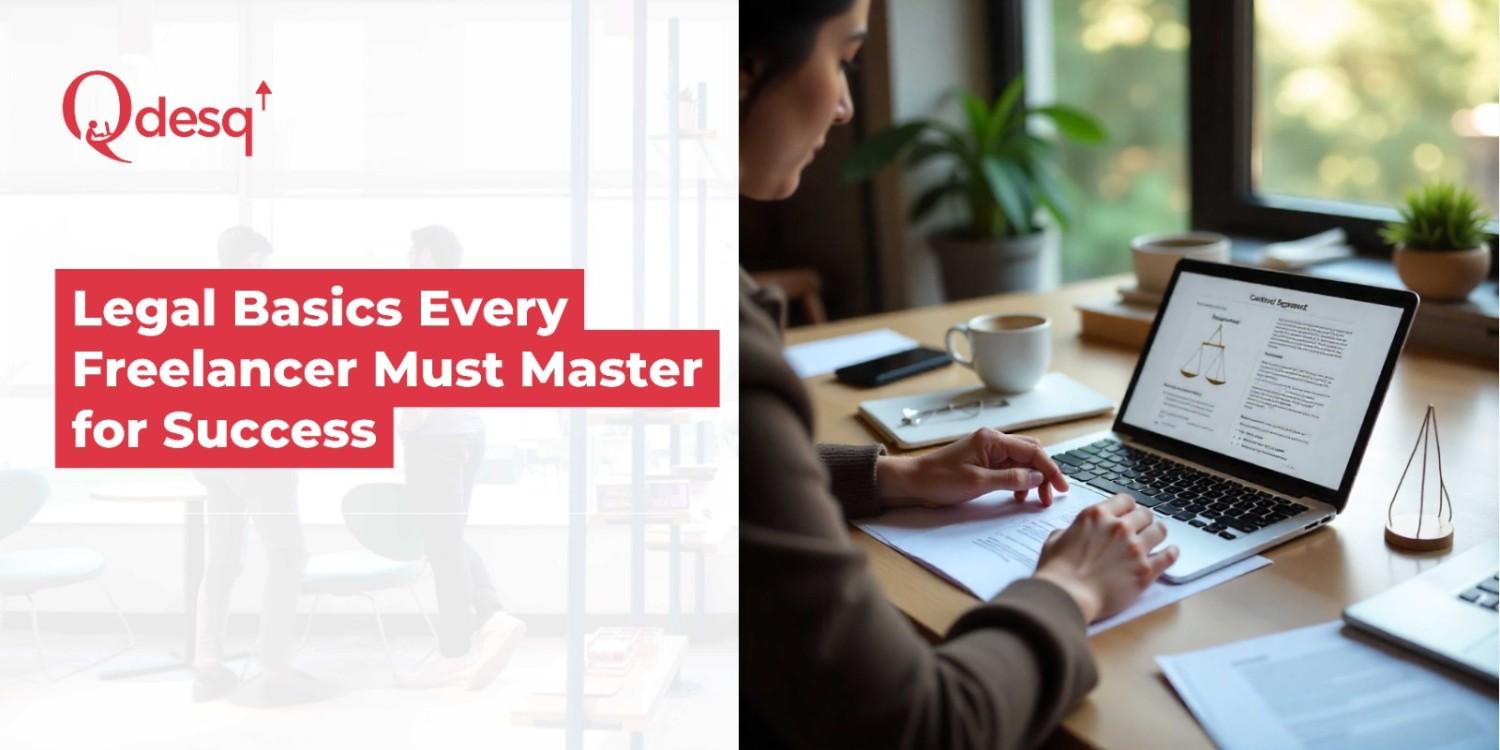Freelancing offers unparalleled freedom, flexibility, and exciting career opportunities, but it also brings legal responsibilities that every freelancer must master to protect their business and livelihood. Without understanding key legal basics, freelancers risk payment delays, contract disputes, and intellectual property conflicts that can derail their journey.
This blog answers real-world legal questions freelancers face every day, providing practical solutions to empower independent professionals in today’s dynamic workspace ecosystem.
Why Legal Basics Matter for Freelancers
Legal knowledge isn’t only for lawyers. For freelancers, having a solid understanding of key legal aspects is essential to protect your relationships, income, and professional reputation. Whether working from home, a coffee shop, or any workspace, freelancing involves legal responsibilities covering contracts, taxes, intellectual property, and privacy. Grasping these legal foundations builds a sturdy base for long-term success by reducing risks, avoiding misunderstandings, and fostering stronger trust with clients.
1. How Do I Protect Myself from Late or Non-Payment?
One of the most common freelancer concerns is not getting paid on time—or at all. The best way to resolve this is by drafting a clear, written contract with payment terms defined upfront. Your contract should specify:
- Payment amount, due dates, and accepted payment methods
- Consequences of late payments or non-payment
- Deliverables and milestones linked to payment releases
If a client delays payment, start with polite reminders. If that fails, a formal legal notice or mediation can resolve disputes efficiently without harming your professional relationship. Being proactive and having solid contracts protects your cash flow and peace of mind.
2. What Should a Freelancer Include in a Contract?
Contracts are the backbone of every successful freelance relationship. Key components include:
- Clear scope of work to avoid scope creep
- Deliverables and timelines
- Payment structure and terms
- Intellectual property ownership and usage rights
- Confidentiality clauses and non-disclosure agreements (NDAs)
- Termination conditions and dispute resolution mechanisms
Having these details in writing helps set expectations and minimises litigation risks. Even if you operate from flexible coworking spaces, your contracts should be airtight.
3. Who Owns the Rights to My Work?
Understanding intellectual property (IP) rights is crucial. As a freelancer, your creative work—whether designs, code, writing, or photographs—automatically belongs to you unless your contract states otherwise. Common practices include:
- Licensing your work to clients instead of selling exclusive rights
- Including “work-for-hire” clauses only when clients pay full ownership rights
- Registering trademarks if branding is involved
Clear IP terms protect your portfolio and revenue streams while allowing clients to use your work as agreed.
4. How Do I Handle Taxes as a Freelancer?
Freelancers must take responsibility for their tax obligations, which vary depending on their country and business structure. Common tax duties include:
- Registering with the tax authorities to obtain the necessary IDs
- Filing income tax returns timely (often quarterly or annually)
- Charging and remitting applicable sales tax or VAT
- Understanding withholding taxes, clients may deduct
Use tools and professional advice to stay compliant. Staying on top of taxes avoids penalties and strengthens your professional brand.
5. Can I Work Without a Contract?
While small gigs may tempt freelancers to skip contracts, freelancing without them invites legal risks that can jeopardise payments and project clarity. A well-drafted contract helps you:
- Define mutual expectations
- Secure timely payments
- Clarify responsibilities and deliverables
- Protect confidential client information
Treat contracts as essential business tools, regardless of project size or workspace location.
6. What Legal Mistakes Should Freelancers Avoid?
Avoiding common legal errors ensures career longevity. Watch out for:
- Working without written agreements
- Ignoring IP rights and copyright laws
- Missing tax registrations or deadlines
- Using copyrighted material without permission
- Overlooking confidentiality and data privacy clauses
Educate yourself, use templates, and seek legal advice when uncertain. Prevention is always better than costly legal battles.
Final Words
Mastering the legal basics is a crucial step for every freelancer seeking growth, confidence, and protection. From drafting contracts to handling payments, protecting intellectual property, and managing taxes, this knowledge safeguards your passion and hard work. Whether you operate in shared offices or remote home offices, staying legally informed is essential for professional excellence.
For freelancers looking for an ideal workspace that offers both legal and business clarity, consider coworking options like Qdesq. These spaces provide a vibrant community, essential infrastructure, and access to expert resources. Take charge of your freelance career—begin protecting your work legally today.
Want to expand your business network? Work from Qdesq’s verified flexible offices and collaborate with leading industry professionals and their businesses. Discover your perfect shared office with Qdesq today at zero brokerage fees.











